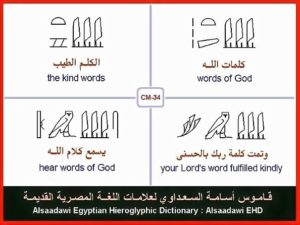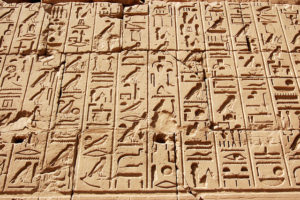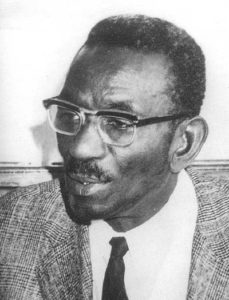ABS Exalts Black History: Part IV
For the 2015 edition of Black History Month, we asked a team of talented writers and scholars to mimic the dance of the Sankofa bird and carry us back to our roots so that we may move forward.
We are presenting their efforts throughout February in an impressive array of pieces that reveal to us from whence we came and where we might want to go. There is nothing quite so edifying and necessary as African history, for its grandeur is spectacular in direct proportion to the depths of scarcity we were trained to believe in the New World. It is as essential to us as the air we breathe. We asked our writers to use as a template the words of Langston Hughes, who penned “The Negro Speaks of Rivers” as a 17-year-old boy crossing the Mississippi. Hughes uses the metaphor of the river as a way to trace the splendor of African people. Here at Atlanta Blackstar, we see these as words to live by:
I’ve known rivers:
I’ve known rivers ancient as the world and older than the
flow of human blood in human veins.
My soul has grown deep like the rivers.
I bathed in the Euphrates when dawns were young.
I built my hut near the Congo and it lulled me to sleep.
I looked upon the Nile and raised the pyramids above it.
I heard the singing of the Mississippi when Abe Lincoln
went down to New Orleans, and I’ve seen its muddy
bosom turn all golden in the sunset.
I’ve known rivers:
Ancient, dusky rivers.
My soul has grown deep like the rivers.
From ‘Divine Speech’ to Social Media Today, Black People Have Always Put Great Value in Communicating
By Eboneé Poindexter
The Nile Valley exists as the birthplace of civilization, as people began organizing society and understandings of the natural order of life around the Nile River over 10,000 years ago.
The language and writing system of this ancient civilization emerged in 3100 BCE and is called Mdw Ntr, which may be translated as “Divine Speech,” or as the Greeks named the ancient writing system, Hieroglyphs or “sacred images.”
During the periods of antiquity in the Nile Valley, the basis of social organization was Maat, an immutable African organizing principle which is grounded in harmony and justice as equalizing forces for the maintenance of righteous moral and ethical civilizational existence. In the Kemetic tradition, speech was the basis of knowledge, as speech is necessary in thought and the creation and sharing of ideas. Speech here should be understood as both verbal and non-verbal, as whether written or spoken, speech is an aspect of creating and emitting any given idea. As Maat—which in its purest form is the ultimate form of truth, justice, reciprocity and balance—was the grounding principle of society, speech was as well-grounded in Maat and the most valued speech was determined by its proximity to Maat.
Speech itself was a form of information sharing and knowledge production. In antiquity, Africans used speech to communicate in the present moment with verbal speech and to speak to the future with written speech. Here, speech becomes a form of knowledge sharing that transcends space and time, as we can in this era read the speeches of the ancient past and apply them contemporarily.
According to Asa Hilliard, knowledge and wisdom were the highest aims of ancient society, and the educational process was a collective social process. Learning collectively was encouraged to support both the process of knowledge absorption and production as well as to create deep and lasting social bonds. Dr. Hilliard notes that symbols, analogies and rituals were used as tools for building knowledge. In addition, art and music were important educational tools as well. As African civilizations expanded and migrated west across the continent, they took with them these educational principles and continued to build great societies and kingdoms such as Ghana, Mali and Songhai.

When Africans were brought to the Americas and refused knowledge of their history and culture, education went underground and became prized. After the Emancipation Proclamation of 1863—and the subsequent process of criminalizing the system of chattel enslavement and legalizing Black Codes that placed the freedom of people of African descent at the discretion of the enforcers of the Codes—education wasn’t systematized, as people of African descent were just becoming accustomed to life away from their homeland. Literacy was privileged and private. During the period of Reconstruction, the Freedman’s Bureau actively worked to build schools for people of African descent. Many people of African descent moved up from the south, traveling along the Mississippi River and along the coast of the Atlantic Ocean. Education naturally existed as one of the solutions for the construction of life in America upon the dawn of the 20th century.
Similarly, the concept of training for industrial skills was long embedded in the minds of people of African descent. Booker T. Washington believed in the power of education, and he encouraged people of African descent to pursue training in the industrial world, as he believed that would support a successful method of social existence. Conversely, W.E.B. DuBois believed in the importance of deep intellectual study. As people of African descent followed both paths, the question of desegregating the education system became prominent during the middle of the 20th century, and it was answered when schools were desegregated in 1954. America journeyed into desegregation in the 1960s, and the decades following reveal both the amount of work achieved and simultaneously still needed, particularly in the realm of education.
Contemporarily, while some schools are desegregated, neighborhoods and social classes are often segregated. Subsequently, the distribution of resources are disproportionate and children of African descent often fail to receive an education that ensures their success.
Technology and more specifically social media play a large role in information sharing. According to Business Insider, social media is the number one Internet activity by Americans. So with our eyes fixated on phones, tablets and screens social media literally streams directly into our consciousness the thoughts, projections, images and ideas of human activity instantaneously. Perhaps as this thoroughfare of information acts as a continuous “stream” into our consciousness we have to consider social media as a significant form of information sharing, and information sharing as an informal system of education. As one of the primary forms of information sharing of our era, what is it that we are seeing and sharing and is it conducive to our self-development? We have access to the thoughts of people around the globe, right? We are being inundated with celebrity news sightings, the latest killings, the current status of the financial market, new film and album drops, and most important, celebrity beef. What does all of this do to our psyche? Does it help us focus on manifesting our goals?
One of the most significant rivers that humanity has known is the Nile River, which runs Up South from Lake Victoria to the Mediterranean Sea. The Nile River is the longest river in the world. Coincidentally, some of the greatest contributions to the world developed during the periods when Africans kept rivers both literally and figuratively near. Abundant was the value for the pursuit of knowledge and wisdom teachings when we were near our rivers before the Maafa. We have known rivers, and certainly we’ve known ancient rivers. Has our proximity to rivers during different time periods and geographic locations affected our cultural existence? Has the value of the pursuit of education shifted as we’ve become distant from our ancient African rivers?
The recurrent referencing of Kemet here is as a result of the idea put forth by Cheikh Anta Diop:
For us, the return to Egypt in all domains is the necessary condition for reconciling African civilizations with history, in order to be able to construct a body of modern human sciences, in order to renovate African culture. Far from being a reveling in the past a look toward the Egypt of antiquity is the best way to conceive and build our cultural future. In reconceived and renewed African culture, Egypt will play the same role that Greco-Latin antiquity plays in Western culture.
It is through the ancient speeches that we have knowledge of the great past—a past in which society was established based upon the ethical principle of Maat that held all humans equally accountable in both speech and action.
Eboneé Poindexter is a Philadelphia native. She attended Temple University for her undergraduate degree in Africana Studies and received her Master’s in Africana Studies in 2014. Her research examines the African cultural retentions within the African Diaspora of the Indian Ocean Region. Some among many of her Black intellectual inspirations include Cheikh Anta Diop, Asa Hilliard, Marimba Ani, and John Henrik Clarke, and she enjoys writing and yoga as acts of resistance and healing.
References
Diop, C. A. (1991). Civilization or Barbarism: An Authentic Anthropology (H. J. Salemson & M. D. Jager, Eds.). Brooklyn, NY: Lawrence Hill Books.
Hilliard, III, Asa G. (1999). SBA: The Reawakening of the African Mind. Gainesville, FL: Makare Publishing Company.
Diop, C. A. (1987). Precolonial Black Africa. Chicago, IL. Lawrence Hill Books.





